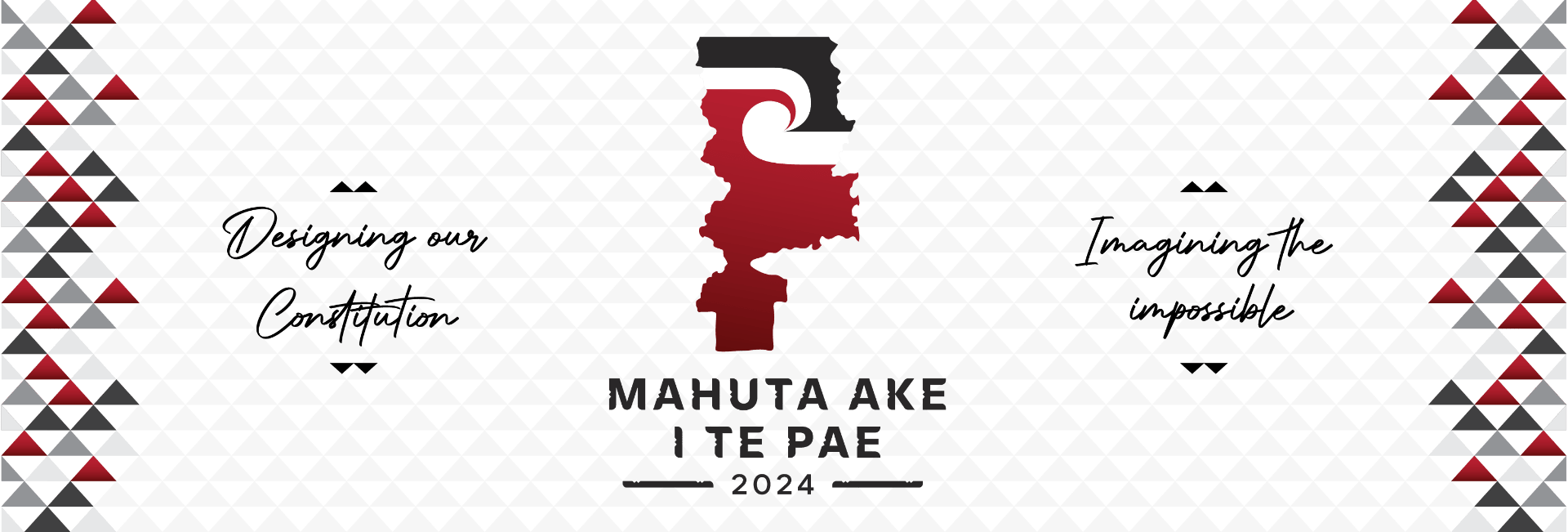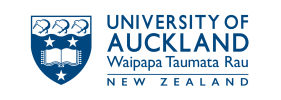
Keynote speakers
Confirmed keynote speakers include: Ani Mikaere, Dayle Takitimu and Veronica Tawhai.
A diverse range of panellists will also share and discuss their ideas on inclusive constitutional transformation. Panellists will include: Margaret Mutu, Hope Tupara, Pania Newton, Valmaine Toki, Erin Matariki Carr, Jane Kelsey, Andrew Butler, Dylan Asafo, Kirsty Fong, Anjum Rahman and Minette Hillyer.
We are privileged to be joined by the United Nations Special Rapporteur on the Rights of Indigenous Peoples, Jose Francisco Cali-Tzay.

Ani Mikaere
Ani Mikaere is from Ngāti Raukawa (Ngāti Pareraukawa, Ngāti Huia) and Ngāti Porou. In her role as Pou Whakatupu Mātauranga at Te Wānanga o Raukawa, she is responsible for leading and promoting activity which nurtures and grows the mātauranga continuum—the constantly evolving body of knowledge that has been produced by successive generations of Māori theorists and practitioners.
In 2016 she was awarded Te Kāurutanga, a degree conferred by the founding iwi of Te Wānanga o Raukawa. Her thesis, entitled Like Moths to the Flame? A History of Ngāti Raukawa Resistance and Recovery, investigates the impact of colonisation on Ngāti Raukawa thought and was published in 2017. Other publications include He Rukuruku Whakaaro: Colonising Myths, Māori Realities (2011) and The Balance Destroyed (2017).

Erin Matariki Carr
Erin Matariki Carr: (Ngāi Tūhoe, Ngāti Awa, Pākehā). Matariki was raised in the Whakatāne area and currently lives in her hometown of Tāneatua. She completed her studies at Victoria University of Wellington with a Bachelor of Laws (Honours) and Bachelor of Arts, majoring in Spanish. Matariki’s work experience has been in Indigenous governance systems, Te Urewera legal personhood and constitutional transformation. Matariki is co-lead of RIVER Aotearoa and works as a Research Fellow for Te Tai Haruru, the Aotearoa Centre for Indigenous Peoples and the Law at the University of Auckland with Professor Claire Charters and the Rutherford Project exploring Indigenous constitutional movements in Latin America and the Pacific.

Eru Kapa-Kingi
He Aupōuri, he Ngāpuhi, he pānga hoki ki Waikato me Te Whānau a Apanui. Tihe wa mauri ora.
Eru grew up in Te Tai Tokerau, in the birthplace of both He Whakaputanga and Te Tiriti. Raised to be political and critical of our existence as tangata whenua by passionate parents also on their own journey of reclamation. Eru studied te reo and Pākehā law at Te Herenga Waka, and has worked in a variety of legal roles. He now works as a legal academic, teaching about He Whakaputanga, Te Tiriti, tangata whenua rights, as well as the intersection between Māori and Pākehā jurisprudence. He has also just applied to undergo doctoral study examining deeply the constitutional relationship in Aotearoa.
Furthermore, Eru is a proud trustee for his iwi of Te Aupōuri and Vice-President Tāne of Te Pāti Māori. He is on a mission to empower te whakareanga hou through basic knowledge on tangata whenua rights to build confidence in holding and defending our truth that we never ceded our mana, and that we are still sovereign.

Anjum Rahman
Anjum Rahman is the Project Co-lead of Inclusive Aotearoa Collective Tāhono, formed in the aftermath of the Christchurch mosques attacks. The organisation structure includes tangata whenua and tangata tiriti Co-Leads, in recognition of the partnership envisioned in Te Tiriti.
Rahman has been a campaigner for human rights both through community and political engagement. Her work, over decades has focused on building belonging and inclusion across various communities, including media representation, community development and international engagements.
Rahman was a founding member of the New Zealand Islamic Women’s Council, and of Shama Ethnic Women’s Trust and has served as a trustee on its board from 2002 until 2019.
Rahman was a spokesperson for the Muslim community following the Christchurch mosque shootings in March 2019, in which 51 people were killed and 40 injured. In media interviews following the attack, she voiced frustration at the failure of state agencies to take concerns about violence towards the Muslim community, Islamophobia, and the rise of the alt-right in New Zealand seriously.
She is currently a trustee of Trust Waikato and on the governing council of InternetNZ. She is a member of international committees dealing with violent extremist content online, including the Christchurch Call Advisory Network and the Independent Advisory Committee of the Global Internet Forum for Countering Terrorism.

Jane Kelsey
Dr Jane Kelsey (Pākehā): Jane is an academic and activist on Te Tiriti o Waitangi and a critic of neoliberal policy and globalisation, and is a Professor Emeritus of the Faculty of Law at the University of Auckland, where she worked for over 40 years. She holds law degrees from Victoria University of Wellington, Oxford University, Cambridge University and a PhD from the University of Auckland. Jane has written many books, academic articles and technical reports, addressed international conferences, briefed and advised governments and affected sectors, and run training workshops on related matters for government officials, legislators, trade unions, and civil society. The numerous Waitangi Tribunal claims where she has presented expert evidence for claimants include Te Rohe o te Urewera (Wai 894), Central North Island Claims Stage One (Wai 1200), The Sale of Power Generating State-Owned Enterprises (Wai 2357) and The National Freshwater and Geothermal Resources Claim (Wai 2358), Te Paparahi o Te Raki (Wai 2040) and was the Wai 2522 claimants’ expert in the Tribunal Inquiry on the TPPA and is a pūkenga for Ngā Toki Whakarururanga that was established out of that claim.

Minette Hillyer
Minette Hillyer is Senior Narrative Advisor, Insights at The Workshop, a narrative research and strategy organisation based in Te Whanganui-a-Tara that is unique in Aotearoa New Zealand. Minette is Tangata Tiriti and grew up in Tāmaki Makaurau. Prior to starting at The Workshop, Minette was based in the Media Studies Programme at Te Herenga Waka, Victoria University of Wellington. She is a graduate of Waipapa Taumata Rau and holds a Ph.D in Rhetoric from theUniversity of California, Berkeley, where she was a Fulbright Scholar.

Ani Mikaere
Ani Mikaere is from Ngāti Raukawa (Ngāti Pareraukawa, Ngāti Huia) and Ngāti Porou. In her role as Pou Whakatupu Mātauranga at Te Wānanga o Raukawa, she is responsible for leading and promoting activity which nurtures and grows the mātauranga continuum—the constantly evolving body of knowledge that has been produced by successive generations of Māori theorists and practitioners.
In 2016 she was awarded Te Kāurutanga, a degree conferred by the founding iwi of Te Wānanga o Raukawa. Her thesis, entitled Like Moths to the Flame? A History of Ngāti Raukawa Resistance and Recovery, investigates the impact of colonisation on Ngāti Raukawa thought and was published in 2017. Other publications include He Rukuruku Whakaaro: Colonising Myths, Māori Realities (2011) and The Balance Destroyed (2017).

Anjum Rahman
Anjum Rahman is the Project Co-lead of Inclusive Aotearoa Collective Tāhono, formed in the aftermath of the Christchurch mosques attacks. The organisation structure includes tangata whenua and tangata tiriti Co-Leads, in recognition of the partnership envisioned in Te Tiriti.
Rahman has been a campaigner for human rights both through community and political engagement. Her work, over decades has focused on building belonging and inclusion across various communities, including media representation, community development and international engagements.
Rahman was a founding member of the New Zealand Islamic Women’s Council, and of Shama Ethnic Women’s Trust and has served as a trustee on its board from 2002 until 2019.
Rahman was a spokesperson for the Muslim community following the Christchurch mosque shootings in March 2019, in which 51 people were killed and 40 injured. In media interviews following the attack, she voiced frustration at the failure of state agencies to take concerns about violence towards the Muslim community, Islamophobia, and the rise of the alt-right in New Zealand seriously.
She is currently a trustee of Trust Waikato and on the governing council of InternetNZ. She is a member of international committees dealing with violent extremist content online, including the Christchurch Call Advisory Network and the Independent Advisory Committee of the Global Internet Forum for Countering Terrorism.

Minette Hillyer
Minette Hillyer is Senior Narrative Advisor, Insights at The Workshop, a narrative research and strategy organisation based in Te Whanganui-a-Tara that is unique in Aotearoa New Zealand. Minette is Tangata Tiriti and grew up in Tāmaki Makaurau. Prior to starting at The Workshop, Minette was based in the Media Studies Programme at Te Herenga Waka, Victoria University of Wellington. She is a graduate of Waipapa Taumata Rau and holds a Ph.D in Rhetoric from theUniversity of California, Berkeley, where she was a Fulbright Scholar.

Jane Kelsey
Dr Jane Kelsey (Pākehā): Jane is an academic and activist on Te Tiriti o Waitangi and a critic of neoliberal policy and globalisation, and is a Professor Emeritus of the Faculty of Law at the University of Auckland, where she worked for over 40 years. She holds law degrees from Victoria University of Wellington, Oxford University, Cambridge University and a PhD from the University of Auckland. Jane has written many books, academic articles and technical reports, addressed international conferences, briefed and advised governments and affected sectors, and run training workshops on related matters for government officials, legislators, trade unions, and civil society. The numerous Waitangi Tribunal claims where she has presented expert evidence for claimants include Te Rohe o te Urewera (Wai 894), Central North Island Claims Stage One (Wai 1200), The Sale of Power Generating State-Owned Enterprises (Wai 2357) and The National Freshwater and Geothermal Resources Claim (Wai 2358), Te Paparahi o Te Raki (Wai 2040) and was the Wai 2522 claimants’ expert in the Tribunal Inquiry on the TPPA and is a pūkenga for Ngā Toki Whakarururanga that was established out of that claim.

Eru Kapa-Kingi
He Aupōuri, he Ngāpuhi, he pānga hoki ki Waikato me Te Whānau a Apanui. Tihe wa mauri ora.
Eru grew up in Te Tai Tokerau, in the birthplace of both He Whakaputanga and Te Tiriti. Raised to be political and critical of our existence as tangata whenua by passionate parents also on their own journey of reclamation. Eru studied te reo and Pākehā law at Te Herenga Waka, and has worked in a variety of legal roles. He now works as a legal academic, teaching about He Whakaputanga, Te Tiriti, tangata whenua rights, as well as the intersection between Māori and Pākehā jurisprudence. He has also just applied to undergo doctoral study examining deeply the constitutional relationship in Aotearoa.
Furthermore, Eru is a proud trustee for his iwi of Te Aupōuri and Vice-President Tāne of Te Pāti Māori. He is on a mission to empower te whakareanga hou through basic knowledge on tangata whenua rights to build confidence in holding and defending our truth that we never ceded our mana, and that we are still sovereign.

Erin Matariki Carr
Erin Matariki Carr: (Ngāi Tūhoe, Ngāti Awa, Pākehā). Matariki was raised in the Whakatāne area and currently lives in her hometown of Tāneatua. She completed her studies at Victoria University of Wellington with a Bachelor of Laws (Honours) and Bachelor of Arts, majoring in Spanish. Matariki’s work experience has been in Indigenous governance systems, Te Urewera legal personhood and constitutional transformation. Matariki is co-lead of RIVER Aotearoa and works as a Research Fellow for Te Tai Haruru, the Aotearoa Centre for Indigenous Peoples and the Law at the University of Auckland with Professor Claire Charters and the Rutherford Project exploring Indigenous constitutional movements in Latin America and the Pacific.
Contact Us
Conference@tikatangata.org.nz





